With only one week to go, we're packing in a lot of fun and learning. The campers had a belly flop contest, went to see "Grease" on stage, rode horses and started to work on awards that they want to give to their tutors and counselors. We're looking forward to a big celebration before the end of camp this coming weekend!
Meet the Tutor: Betsy Bankston
Betsy Bankston is a surgical nurse, so she’s skilled at diagnostics. But it was her instinct as a mother that kicked in when she saw her daughter Audrey struggling and falling behind in reading in kindergarten. She knew her daughter wasn't getting the attention she needed, either. “I wasn’t trained as a teacher, but I knew I could do better for her,” she says.
She began to homeschool, and as she became more experienced, she realized that Audrey was dyslexic. While learning more about dyslexia, she heard about Orton-Gillingham. A friend of a friend told her about Susie and Camp Spring Creek. Last January, she took the Associate Level training with the aim of becoming the most effective homeschool teacher she could be. Earlier this month, she began as a tutor at Camp Spring Creek. Betsy is so dedicated that she teaches all week, then drives home on the weekend to her home near Gastonia and works her nursing shifts.
As a tutor, Betsy has worked with students across a range of reading levels. Over the summer, she says, she has been able to supply them with the tools they need to improve their reading, such as syllable chunking, finger tapping, and writing and grammar for more advanced students. They are so eager to learn, she says, she can see them soaking in what they’re learning like sponges. “I love to watch them make progress. It’s so rewarding to see them accomplish their goals.”
Working at Camp Spring has been an intense learning period, says Betsy, one during which she has cemented a lot of what she acquired during her Associate Level training. This investment in her own learning and in her students is one she’s been happy to have opportunity to make.
“Susie says the greatest gift you can give a dyslexic is time,” says Betsy. “When I’m with my students, it doesn’t feel like 55 minutes. The time flies by. I wish I had two hours to spend with them each day!”
Camp Spring Creek: Week 6 in Photos!
Another great week at camp! It was hot, so there was a lot of time in the water and chilling out with books. We said goodbye to eight campers: we'll miss you and never forget you!
Underwater fun!
A powerful foot
Cooling down on a hot day
D's turn at the plate
In the woodshop
Relaxing with a good book
K. kicks it!
A little down time...
Nice form!
A comfy place to read
H. looking cool
Fun and challenging!
A counselor and her pal
Classic summer shot!
There's room for two in the hammock!
A new way of reading
Underwater fun
We will miss you, J.!
Evening fun
Goofing around with the counselors!
A Fond Farewell
Ty takes the plunge
Recently, Camp Spring Creek said goodbye to Tyion, who has spent three summers with us. Ty came to us through our partnership with OpenDoors of Asheville, an organization that connects local children who have financial need with an active, individualized network of support, including tutoring and enrichment opportunities such as attending Camp Spring Creek. Ty is now age 15 and enrolled in Odyssey Community School in Asheville. We sat down to talk to him about his experiences here.
Think back to your first time arriving here. What was it like for you?
I didn’t want to be here. I was homesick. It was probably the third day when things changed.
What turned things around for you?
I realized that there were a lot of people here who believed in me and were striving to help me do what I wanted to do.
What kind of changes can you see in yourself as a result of camp?
I’m not afraid to read aloud in class or read in front the class anymore. I believe in myself a lot more.
What kind of books do you like to read?
I like history books. For example, Elijah of Buxton by Christopher Paul Curtis. That’s probably my favorite book.
How do you feel about being done with camp?
Kind of sad, but excited.
What is your biggest takeaway from camp?
I feel like I can do whatever I put my mind to. I’m more comfortable being in the real world. I’ve come along way.
What are your plans for the future?
I play football for the Asheville Saints (a team that gives homeschooled kids and kids from private schools the opportunity to play middle and high school football). My dream is to play for the NFL, but I’m also interested in sports medicine.
"Campers like Ty are the reason we get so much satisfaction out of what we do," says Susie. "We love to empower children to be the best they can be. The road is often rocky, but it gets smoother the longer you stay with it. Ty will have to overcome many more hurdles in his life, but I believe he has a stronger personal conviction now and will tackle and conquer many obstacles. We are so proud of him and his many accomplishments. We miss Ty here at Camp Spring Creek, wish him the best and hope he will stay in touch!
Ty with counselor, Conor
Ty with family friend Denise and mom Sheila
Camp Spring Creek: Week 5 in Pictures
This week we said goodbye and hello; we swam, climbed and roller-skated. We made new friends and read some great books: another successful week at camp!
Meet the Tutor: Liane Measell
Being a teacher requires a certain degree of fearlessness, which, as you can see in the photo above, Liane Measell has in great measure. A retired teacher with 35 years of experience in early childhood special ed, Liane moved to Asheville last year and was ready for a new challenge. After reading an article about Open Doors of Asheville, Liane decided that volunteering for the organization would be a great way for her to stay engaged in education and improving the lives of children. She started tutoring at the Open Doors-sponsored afterschool program at Asheville's Lee Walker Heights community.
Throughout her career as a teacher, Liane often worked with children who had developmental delays, focusing on their phonemic awareness. Because of her interest in language development and processing, she took interest when she heard about the Orton-Gillingham Associate Level training Susie offers at Camp Spring Creek's Training and Outreach Center in Spruce Pine. Liane completed the 60-hour training last January.
This summer, she has worked with five students at Camp Spring Creek. It's been an "immersive" experience, she says, getting to work so closely with students. The key to success, she says is "teamwork and community." The whole staff at camp works together and supports each other as well as the campers. It's intense and rewarding, she says, but if feels great when she knows her efforts are paying off. Liane cites in particular a student she was working with on phonogram clusters. She asked the student to think of an instance when he could hear a phonogram cluster and he gave a very umpire-like rendition of "Strrrr-ike: you're out!"
When she's not teaching, Liane, a native of New Hampshire, can be found pursuing adventures in the outdoors, one of the chief reasons she chose Asheville as her new home. We're so glad to have Liane with us this summer, applying all her experience and commitment and enriching the lives of our campers.
Camp Spring Creek: Week 4 in Pictures
Our week started with July 4, the Penland parade and fireworks. But there were rafting and biking adventures, archery, rainy-day yoga and lots of other activites, too. And of course, lots of reading! We held a ceremony to say goodbye to our four week campers, of whom we're very proud. We'll never forget you!
At the Penland July 4 parade
Pool fun
Taking aim
S. loves The Mysterious Benedict Society!
Getting ready to raft!
Tiny but mighty!
Goofing around
Rainy day yoga
D. is really into his book.
And the most creative hat award goes to...
A proud tutor and her camper!
We'll miss you, E.!
A very fond farewell
L. and her art teacher!
Way to go, S!
Great job, A.- we'll miss you!
Best buds
Inventing new poses?
Reading in the rocker
Another HP fan
A proud moment.
Great job, C.!
Many accomplishments this month!
Susie and W. on our last night.
So long, B- great to meet you!
Nice work, L.- we're proud of you!
The whole gang
Camp Spring Creek Stories: Andrew's Robot
Over the course of the summer at Camp Spring Creek, campers and their tutors spend a lot of time together. This time is both fun and challenging, filled with great leaps in learning every day. Our tutors go above and beyond to get to know each camper as an individual, tuning in to the camper's unique way of learning, personality and interests. We're thrilled when that individual interest goes both ways.
While working with his tutor Ishani, Andrew noticed that she could use a place to put her pens, pencils and notecards. In woodshop, he designed and crafted this robot bookshelf for her office, drilling holes for the pens and pencils on the ends of the "arms" so that they look like fingers. The robot now 'lives' in her office, a permanent gift to her.
We are proud of our creative campers! But we're also proud of their thoughtfulness and kindness to each other and to their tutors and counselors. Camp brings out the best in everyone!
Camp Spring Creek: A Tale of Two Friendships
Camp is as much about friendship as it is about fun and learning. Each summer, campers from around the world come together to spend a lot of time close together on this mountain outside of Bakersville, North Carolina. In this special environment, it's always amazing to see how quickly friendships develop. This first session of 2016 has been no exception. Here are a few of the superstar friendships we've noticed at Camp Spring Creek this summer.
Ellie and Olivia have been to camp together before, but they were in different cabins and didn't really know each other. This year, staying in the same cabin, they developed a remarkable friendship. Even though they spend a lot of time together, they never get tired of each other. They both love to read and although they have different taste in books (Olivia likes contemporary YA like John Green books and Ellie likes series such as Harry Potter). Counselors say these two girls are always laughing and smiling and brightening everyone else's day!
Enzo comes from California and Will from the Cayman Islands. But despite coming from very different places, these two have formed a fast friendship. It's not necessarily easy for 13-year-old boys to make new friends, but these two have a similar sense of humor and keep each other cracking up all the time. Will they keep in touch after camp ends? They'd like to!
We're proud of all of our campers for their kindness and the way they take chances on new friendships and support each other! Camp friendships are truly unforgettable!
Camp Spring Creek, Week 3 in Pictures!
A Mount Mitchell selfie!
The boys getting ready for the big dance. And getting photobombed by the gals.
Camp is about friendship.
The girls, pre-dance.
Survivor games- three are better than one!
Survivor games at the pool.
Taking aim in archery.
Exploring in the creek.
Woodburning in woodshop.
Getting ready for the dance.
Fun with clay.
Mimi is helping out.
Team spirit in Survivor games!
Taking a break on a group hike.
Team games often require unusual skills!
Taking the plunge.
There IS a lot of learning going on, too!
Cooling down in the creek.
Here we are, atop the highest peak in the East, Mt. Mitchell!
Camp besties!
Camp Spring Creek 2016: Week 2 in Pictures!
S. enjoying reading time!
C. is putting the finishing touches on her birdhouse.
Jimmy is crushing it at kickball.
Reading time!
Made it to the top!
K. and G are getting the hang of rollerskating.
Learning "touch drawing."
Limbo!
Seniors off on the overnight camping trip!
Iwona's swim lesson!
Wow!
Capture the flag.
Minute to win it!
Who are those masked campers?
The First Week at Camp, 2016 in Pictures!
Guest Blog: Decoding Dyslexia NC
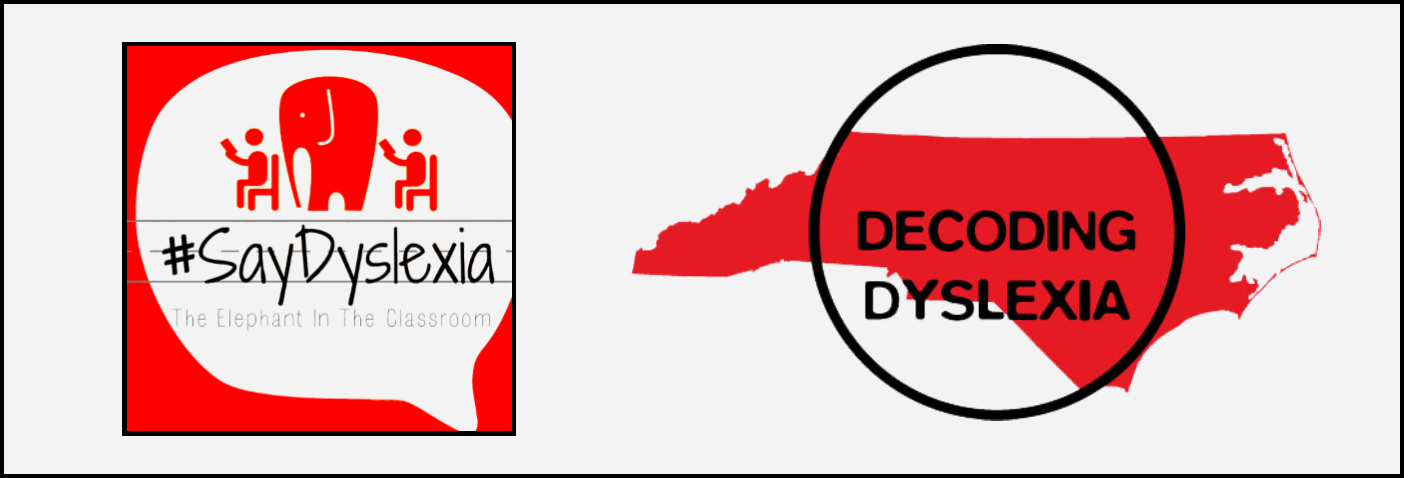 We're excited to be hosting our first guest blogger, Jennifer McBee from Decoding Dyslexia NC! Decoding Dyslexia is a network of parent-led grassroots movements across the country concerned with the limited access to educational interventions for dyslexia within the public education system. Here in North Carolina, Decoding Dyslexia is making great progress. Here's what Jennifer shared with us:
We're excited to be hosting our first guest blogger, Jennifer McBee from Decoding Dyslexia NC! Decoding Dyslexia is a network of parent-led grassroots movements across the country concerned with the limited access to educational interventions for dyslexia within the public education system. Here in North Carolina, Decoding Dyslexia is making great progress. Here's what Jennifer shared with us:
Decoding Dyslexia Hoping to Gain Ground in 2016
Decoding Dyslexia NC (DDNC) is driven by NC families concerned with the limited access to educational interventions for dyslexia within our public schools. The Decoding Dyslexia movement aims to raise dyslexia awareness, empower families to support their children and inform policymakers on best practices to identify, remediate and support students with dyslexia in NC public schools. The national movement started in 2011 with several parents from New Jersey. Today there are Decoding Dyslexia groups in all 50 states and four Canadian Provinces.
Decoding Dyslexia NC is still young and looking for concerned parents who want to make a change in education for their children as well as others. Lending your voice to by reaching out to your representatives is a huge help. A great example of parents making a difference is the bipartisan Research Excellence and Advancements for Dyslexia Act (READ Act) H.R. 3033, which the president signed into law on February 18, 2016. Keep a watch out on our website for calls to action for dyslexia parents advocate for their children. DDNC advocates for the state of North Carolina to:
- Mandate a universal definition and understanding of “dyslexia” in the state education code
- Mandate teacher training on dyslexia, its warning signs and appropriate intervention.
DDNC sees that NC parents have struggled getting services because schools typically don’t use the word dyslexia, nor fully understand that it’s a difference in how the brain is wired. DDNC is working to change that and help parents advocate for their children. Another example of how the national group has made a difference was the #SayDyslexia movement, which resulted in a dyslexia guidance letter from the US Department of Education Office of Special Education and Rehabilitative Services last October. The letter basically says that schools can use the word “Dyslexia” when it applies to a child with a reading disability. Properly defining the issue when a child is struggling is crucial to getting proper instruction.
DDNC currently has four co-leaders who contribute a variety of strengths to our team. We want to connect with other concerned parents, teachers, and administrators throughout North Carolina who want to create an effective change with less effort through education about dyslexia. We are also concerned with how to help students with dyslexia families in NC that are in rural areas who may not have access to as many resources for their children.
If you want more information or would like to get involved, please contact and connect with us:
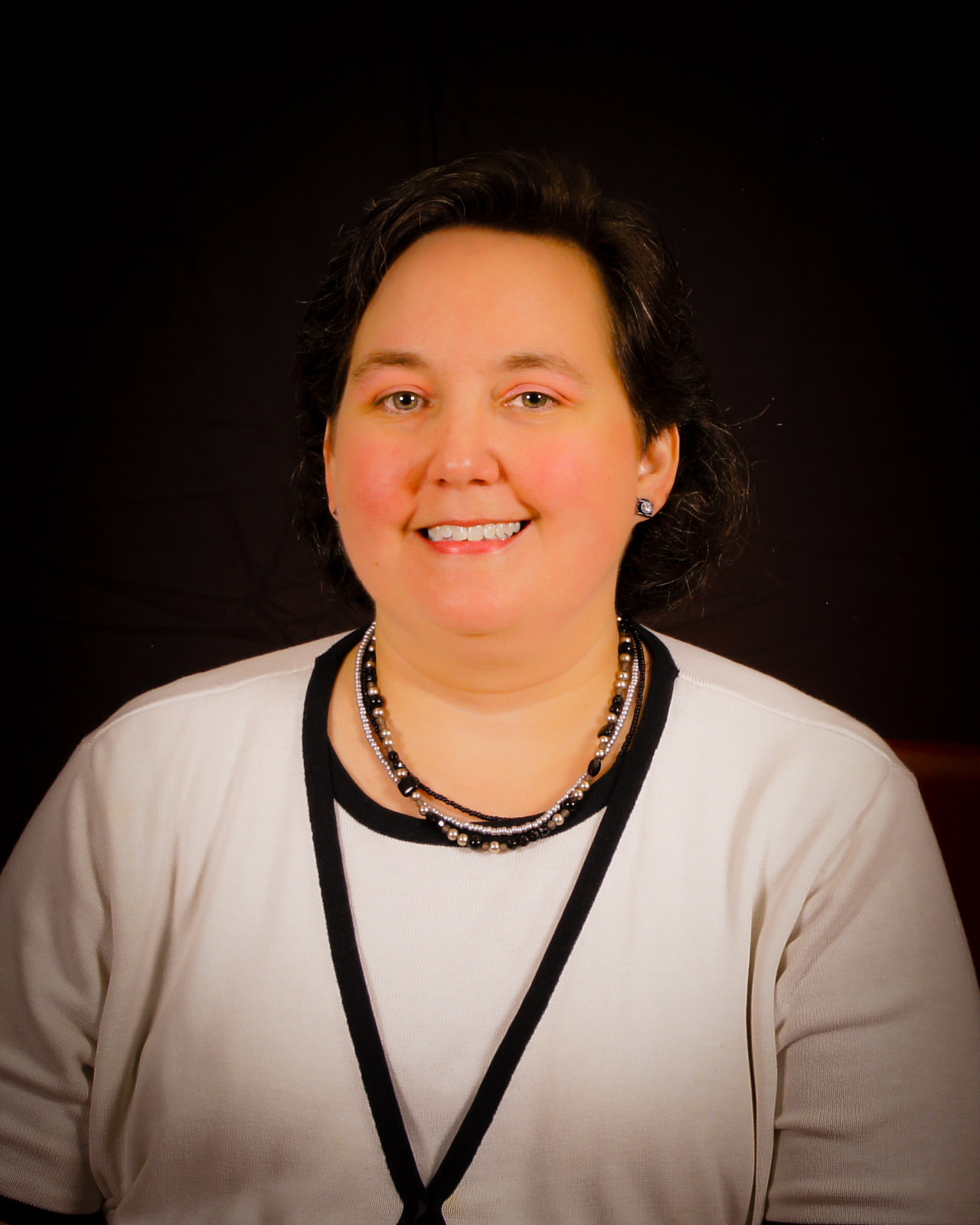
Meet the Counselors: Conor Lennon
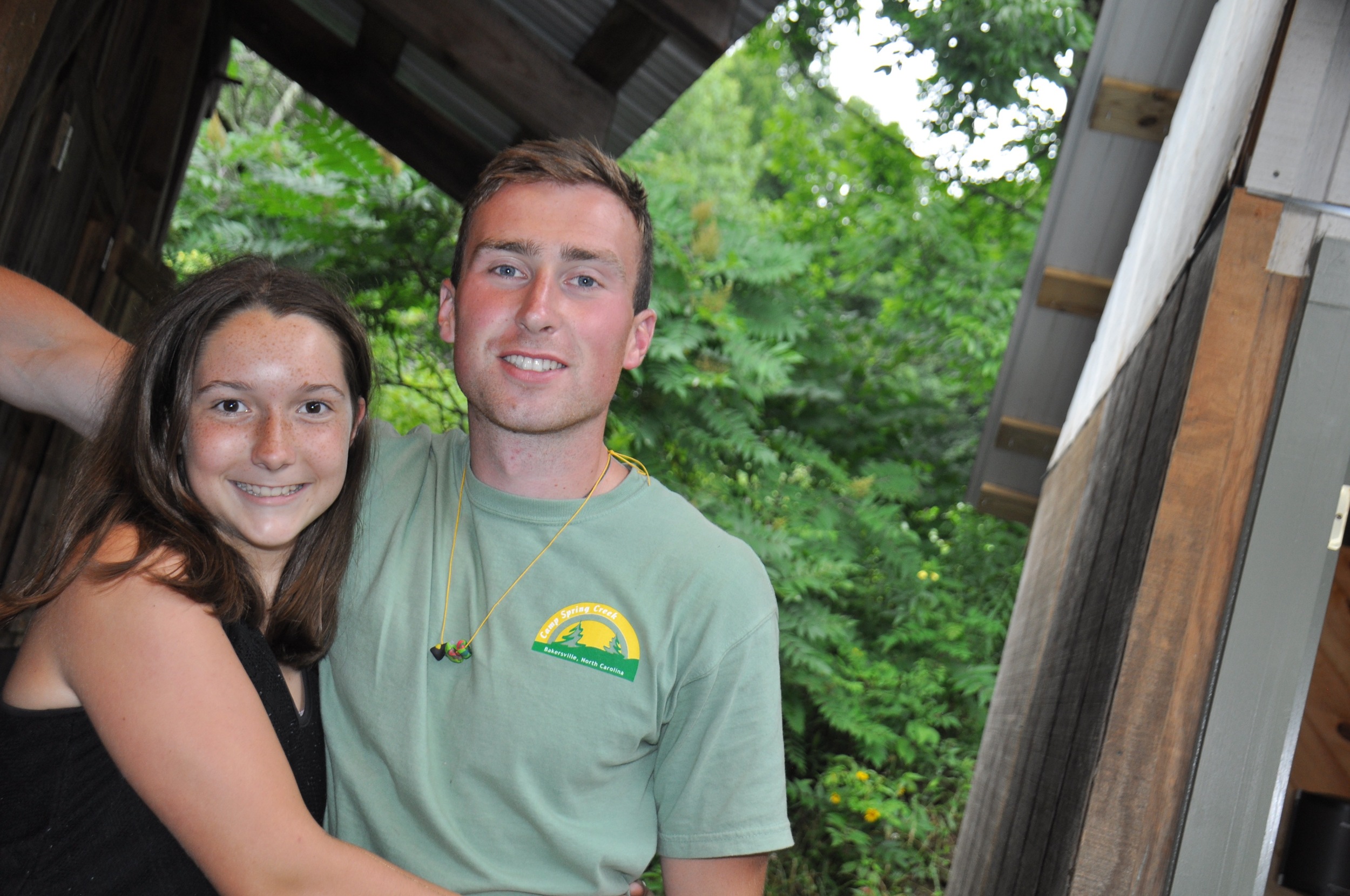
This year, we’re thrilled to have counselor Conor Lennon (above, right) returning for another season at Camp Spring Creek. Conor hails from beautiful Timahoe, Ireland, so in addition to being a fun, friendly and encouraging counselor, he’s also got a great accent! We caught up with Conor to hear a little about his experiences last year and what’s in store for this summer.
What made you decide to return to Camp Spring Creek?
I decided in the second week of camp last year that I wanted to come back. It’s a combination of things; the kids are all great, the location is beautiful, all the staff are lovely people, and it's just the right blend of challenging, rewarding and fun. I don’t really know how to describe it better than that.
What was the highlight of last summer for you?
The Color Run was probably my favorite activity. We camped out, had so much fun, and everyone enjoyed it. There were no problems or arguments— literally everyone had a great time.
What advice would you give to incoming campers?
It's okay to be nervous. I was nervous! But everyone is really friendly and helpful, and you're so busy and having so much fun that the time flies by.
What should campers in your cabin know about you?
I know everything. I see and hear everything that goes on in my cabin. My spies are everywhere!
Finish this sentence. At Camp Spring Creek, Conor is our go-to counselor for…
…winning competitions! I'm extremely competitive, and my teams won nearly all the group activities last year.
Which do you like best outdoor adventures or organized team games/sports?
I don’t really have a preference. I'm competitive, so I get really into team games, but as long as I’m outside and being active, I’m happy.
Finish this sentence. Conor is a big fan of....
Football! I started following the Panthers last year, just in time for their march to the Superbowl. Since then, I've really started enjoying the sport. I've watched a lot of games and I'm even reading up on it to try to understand it better!
Meet the Counselor: Grace Stevens
 When campers first arrive at Camp Spring Creek, they might be a little shy if they don’t come along with a friend or family member. These campers need to meet Grace Stevens: she has a way of making everyone she meets feel at ease. Grace hails from Hartford, a village in the English county of Cheshire known mostly for agriculture. Last year, she graduated from the University of Central Lancaster with a degree in nursing, but she has spent some time since then seeing the world. Since last November, she’s been in Courchevel in the French Alps, but she’ll join us at Camp Spring in June. We asked Grace to tell us at little bit more about herself.
When campers first arrive at Camp Spring Creek, they might be a little shy if they don’t come along with a friend or family member. These campers need to meet Grace Stevens: she has a way of making everyone she meets feel at ease. Grace hails from Hartford, a village in the English county of Cheshire known mostly for agriculture. Last year, she graduated from the University of Central Lancaster with a degree in nursing, but she has spent some time since then seeing the world. Since last November, she’s been in Courchevel in the French Alps, but she’ll join us at Camp Spring in June. We asked Grace to tell us at little bit more about herself.
What are you most looking forward to at camp this summer?
I’m most looking forward to the hot weather, after a winter of snow! And also meeting new people and being outside exercising and learning new skills as well as having fun with all the campers
What do you want campers in your cabin to know about you?
I'm very chatty and love talking so, we will be having lots of fun discussions. I love having sing alongs, even though I'm not the best singer! I have a very approachable and caring side, which probably comes from the nursing, so you can talk to me about anything.
What do you think your camp specialty will be?
I love arts and crafts so would love to be involved in that, however, I also love any sports and would be happy with either. I also like talking , so I'm happy to have a go at anything!
Which do you like better: outdoor adventures or organized team sports?
I'm an organized team sports person at heart and have always played hockey rounders and netball, but recently I’ve gotten into hiking, so outdoor adventures sounds like fun to me!
What do you want to accomplish this summer?
This summer I want to learn new skills and sports, make new friends, complete my lifeguard training, and have an amazing summer in America with some happy campers. Anything else would be an amazing bonus!
Please join us in welcoming Grace to the Camp Spring Creek team!

Meet The Counselor: Ollie Todd
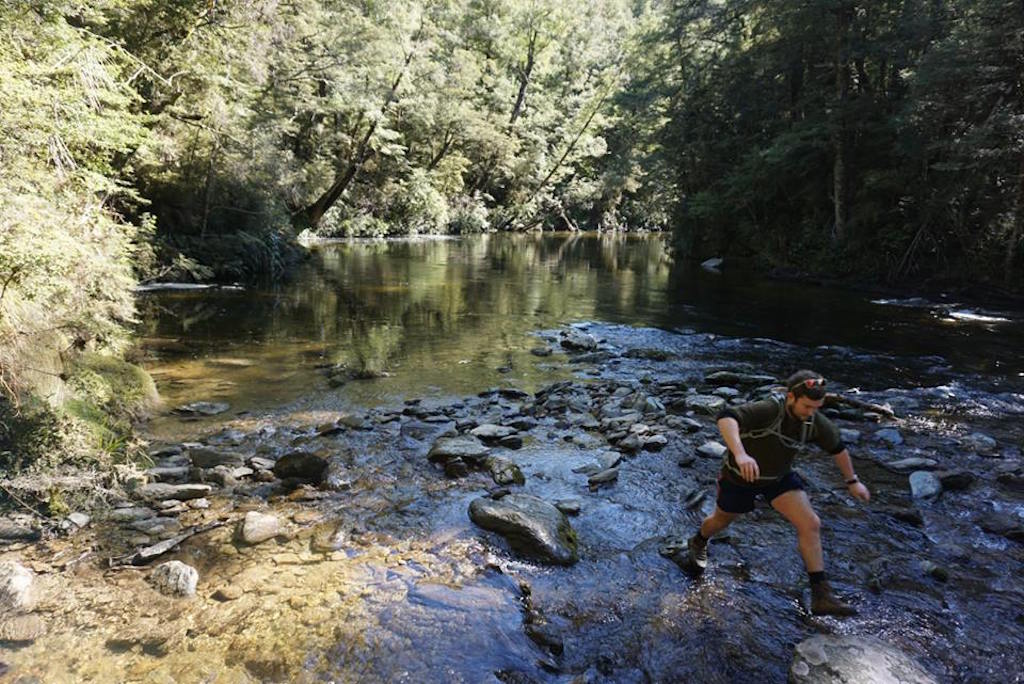 Who’s that intrepid adventurer, fording that mountain stream with ease? Why, it’s Ollie Todd, one of our first-year counselors at Camp Spring Creek. Ollie has the distinction of being the counselor who has the longest journey to make to get to Bakersville. It will take over a day to arrive from Invercargill, on the very bottom of New Zealand’s South Island. Invercargill has the distinction of being the southernmost and westernmost town in the country and one of the southernmost cities in the world. If you keep going south from there, you end up in Antarctica!
Who’s that intrepid adventurer, fording that mountain stream with ease? Why, it’s Ollie Todd, one of our first-year counselors at Camp Spring Creek. Ollie has the distinction of being the counselor who has the longest journey to make to get to Bakersville. It will take over a day to arrive from Invercargill, on the very bottom of New Zealand’s South Island. Invercargill has the distinction of being the southernmost and westernmost town in the country and one of the southernmost cities in the world. If you keep going south from there, you end up in Antarctica!
Although he’s making such an epic journey, we have a feeling he’s going to be right at home at Camp Spring Creek. We caught up with Ollie to find out a little bit more about him.
What do you do during the school year, Ollie?
I’m a substitute teacher, working with elementary school students, aged 5 to 12. This will be my first year working at a summer camp in the US.
What are you most looking forward to about camp this summer?
Meeting new friends and having lots of fun.
What are your favorite camp games?
I don’t really have a favorite, but I like anything that involves cooperation and team sports. Games played at night in the dark are always fun, too!
What can campers do to get on your good side?
Tell me a good joke. I appreciate a sense of humor.
Camp Spring Creek is known for its great food especially desserts. What’s your favorite?
A raspberry white chocolate brownie-my sister makes a great one!
By the end of the summer, what do you hope to have achieved at Camp Spring Creek?
I hope I’ll have met a lot of great new people, have had lots of fun and convinced people to come to New Zealand, the most beautiful country in the world!
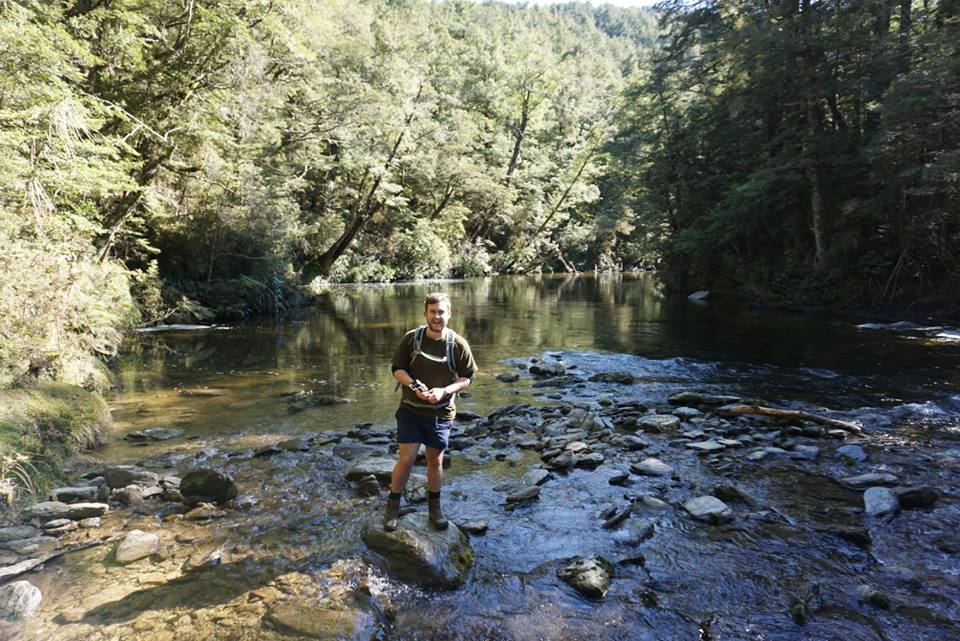
Please join us in welcoming Ollie! There are a still a few spaces left for this summer at Camp Spring Creek, one of only three dyslexia summer camps in the US. Contact us for more information!
Meet the Counselor: Iwona Kurczab
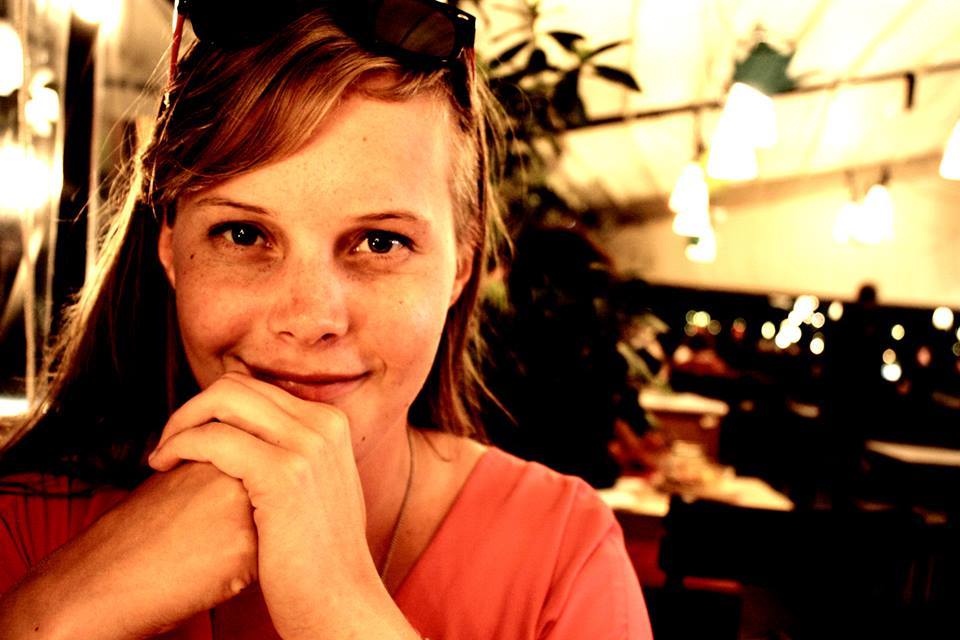 The countdown is on! We’re just a few months away from the start of camp and we’re excited about the summer of ’16.
The countdown is on! We’re just a few months away from the start of camp and we’re excited about the summer of ’16.
One of the things that make Camp Spring Creek so special is our counselors. They come from all over the world, offering our campers a chance to learn about other cultures as well as having fun and building their reading and writing skills. We caught up with one of our new counselors Iwona Kurczab to ask her a little about herself.
Where are you from, Iwona?
I’m from Limanowa, a small city in Poland, but I’m working in Kraków now.
Have you worked at Camp Spring Creek before?
This is my first year at Camp Spring Creek, but I have experience working as a counselor at a youth sport camp in Poland.
What are you most looking forward to about camp this summer?
I’m looking forward to meeting new people and learning and doing things that I’ve never done before and having fun with all people at camp. I want to enjoy every moment!
What are your favorite camp games?
I love chase games with two teams, when one of them is trying to find the first one with some instructions on the way. The game takes place outside, mostly in the forest.
What can campers do to get on your good side?
All they have to do is smile!
Camp Spring Creek is known for its great food especially desserts. What’s your favorite?
Brownie cake!
By the end of the summer, what do you hope to have achieved at Camp Spring Creek?
By the end of this summer, I hope I will be totally happy with the things that will happen to me and I will speak perfect English!
Please join us in welcoming Iwona. There are still a few spaces left at camp this summer! Contact us for more information
Teacher Brings O-G Training To Her Students at McDowell Tech
Bridget Burnette had no idea what she was getting into when her supervisor at McDowell 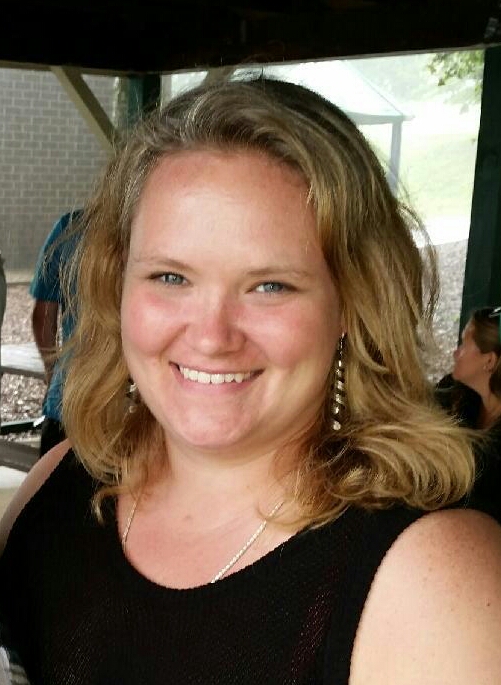 Technical Community College told her he had signed her up for Orton Gillingham Associate Level training with Susie van der Vorst. As she began looking through the training materials that had been forwarded her way, the English Language Learner teacher, who had recently been asked to take on GED classes as well, felt clearer.
“When I took a look at the notebook we’d be working from, I was overwhelmed,” Bridget says. “Once we got started, though, I realized every teacher and every student should have this understanding of language.”
Technical Community College told her he had signed her up for Orton Gillingham Associate Level training with Susie van der Vorst. As she began looking through the training materials that had been forwarded her way, the English Language Learner teacher, who had recently been asked to take on GED classes as well, felt clearer.
“When I took a look at the notebook we’d be working from, I was overwhelmed,” Bridget says. “Once we got started, though, I realized every teacher and every student should have this understanding of language.”
A new light flipped on for Bridget as she learned syllable division, spelling patterns and the breakdown of letter sounds. “Growing up,” she says, I could spell because I was good at memorization, not because I understood how words were spelled.
Part of what she has learned, too, is how to recognize learning differences, which she believes will allow her to meet individual student needs better. “Some of my students left school when they were young and started working. I have some students who read at only a fourth grade level. I believe having an understanding of things such as why words are spelled the way they are will be particularly helpful to my students as they learn new words and continue their education.”
An unexpected gift was the development of new empathy for her dyslexic brother as she watched her dyslexic training partner struggle through some of the lessons. “I watched him struggle growing up. At school, he was put in a slower learning group. So many people mistreated him because they thought he was dumb.”
Bridget knows nothing could be further from the truth. “He’s very intelligent, artistic and loves to see how things work. I told him what I’m doing and he was interested in learning more, which is exciting to me.”
Since finishing the class, Bridget feels better equipped to teach. “I’m currently teaching phonics to my ESL students who are new to the English language. I want them to learn the correct way and help them understand the why’s behind our language. I also plan to use Orton-Gillingham with my other classes, whether dyslexia is the issue or not. I believe this multisensory approach is a great way to learn.”
She also believes it’s a good tool for her own future studies. “I want to take the GRE to go to grad school and I’m certain this training will help me have a better understanding when it comes to the vocabulary words I’ll encounter. I’m excited about the possibilities.”
Teacher Uses O-G to Reach New Heights with Students
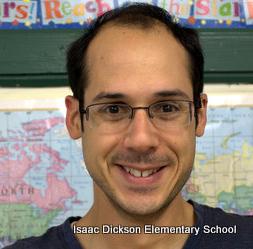 Scott Fisher’s enthusiasm is contagious. "The thing I love most about teaching is that moment of discovery, when children make connections and their little brains explode," says Scott, who teaches kindergarten at Asheville’s Isaac Dixon Elementary. "You can see it in their faces. It's priceless."
Scott also believes the Orton-Gillingham (O-G) training he recently went through is priceless. "O-G training has had a huge impact on my understanding of both the English language and developmentally appropriate teaching practices for reading and writing."
Scott Fisher’s enthusiasm is contagious. "The thing I love most about teaching is that moment of discovery, when children make connections and their little brains explode," says Scott, who teaches kindergarten at Asheville’s Isaac Dixon Elementary. "You can see it in their faces. It's priceless."
Scott also believes the Orton-Gillingham (O-G) training he recently went through is priceless. "O-G training has had a huge impact on my understanding of both the English language and developmentally appropriate teaching practices for reading and writing."
On one hand, Scott uses it in the classroom in his small group work. "I’ve also been incorporating O-G principles and activities into my whole-class Fundations curriculum, which covers phonics and language development. I’ve got a much stronger grasp on the spelling patterns of our language, which makes me better prepared to answer students’ questions. O-G supplements make my lessons much more enjoyable for students."
He’s seen the O-G approach impact non-dyslexic students as well. "So far, the O-G additions I’ve made have really hit home with my high flyers who were sometimes bored with whole-class phonics instruction. I simply slip slightly more advanced rules and patterns to those students who are ready, while reinforcing basic phonetic instruction for the entire class."
All students seem to appreciate Scott’s daily warmup. "In our Fundations curriculum, we warm up daily with drill sounds, repeating the letter name and keyword and sound of many letters (it sounds like "K, kite, /k/!"),” he says. "Because O-G is a multisensory approach, our trainer and O-G Fellow Susie van der Vorst recommended I added a tactile element to the drill. Now my children are all repeating the drills while simultaneously using two fingers to trace the letter on the carpet. They are engaging their visual, auditory and kinesthetic/tactile senses, strengthening the pathway to the brain."
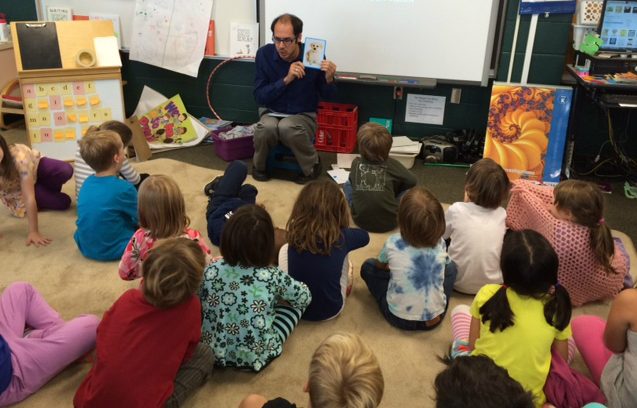
Incorporating the O-G approach in the primary grades is critical according to Scott. “Everything about a student’s career hinges on those first few years."
Scott is thankful to OpenDoors of Asheville for inviting him to participate in O-G training. "For people like me, with a huge curiosity and thirst for understanding, it’s been a very rewarding experience. In my mind, every teacher should be given the option to learn the O-G approach."
OpenDoors Uses O-G Approach as Tool to Help Children Rise Above Poverty
 Jen Ramming had no idea that volunteering in a third grade classroom would change her life. “The dynamics fascinated me,” she recalls. “I asked the teacher what I could do to help. One day, she asked me to take three boys, who were disruptive, out of the classroom. We went to the library for books and curled up in the hallway where we took turns reading. Although I realized they were clearly bright and capable, not a single one of these young boys, whose lives had been touched by multi-generational poverty, knew more than five words by sight. One knew the alphabet, but not the sounds. They were learning to read while other kids were reading to learn.”
Jen Ramming had no idea that volunteering in a third grade classroom would change her life. “The dynamics fascinated me,” she recalls. “I asked the teacher what I could do to help. One day, she asked me to take three boys, who were disruptive, out of the classroom. We went to the library for books and curled up in the hallway where we took turns reading. Although I realized they were clearly bright and capable, not a single one of these young boys, whose lives had been touched by multi-generational poverty, knew more than five words by sight. One knew the alphabet, but not the sounds. They were learning to read while other kids were reading to learn.”
Before long, Jen had taken one of the boys under her wing, signing him up to play soccer on her son’s team. Knowing his family’s precarious situation, she made sure Jamer always had enough to eat, and went out of her way to pick him up for games. “The soccer team embraced this young man and his family, offering rides, taking him on family outings and even vacations. Essentially, we became extended family.
Other children followed suit. “Suddenly, there were nine boys and girls, each from a family dealing with the challenges of multi-generational poverty. We were opening doors and the kids were walking through. I felt like we had something going that was replicable for other children.”
From that germ of an idea, Jen helped create a board of directors with a group of concerned parents and professionals from varied fields. Together, they founded OpenDoors of Asheville to help local children reach their potential through individualized networks of support and a ![images[1]](http://static1.squarespace.com/static/572e2bdcd51cd4708373efa6/576841a83f405861058de241/576842583f405861058e01ad/1466450520273/images11.jpg?format=original) host of educational and enrichment opportunities. These opportunities, which range from tutoring to summer camp, are designed to help children begin to invest in themselves and ultimately break the cycle of multi-generational poverty. Jen is proud to serve as the organization’s executive director.
host of educational and enrichment opportunities. These opportunities, which range from tutoring to summer camp, are designed to help children begin to invest in themselves and ultimately break the cycle of multi-generational poverty. Jen is proud to serve as the organization’s executive director.
Having spent time observing Jamer, Jen’s friend Dr. Marcy Sirkin, who owns Arden Reading Clinic North, had a gut feeling he was dyslexic. She then asked colleague Dr. Deirdre Christy to evaluate him. As suspected, Dr. Christy confirmed he was bright and profoundly dyslexic.
With that knowledge in hand, Jen began learning about Individualized Education Plans (IEP) and how to navigate the system and advocate for him. “It didn’t take me long to realize how overlooked and underserved this child had been.”
With Jamer already so far behind in reading, Jen knew a remediation plan had to be put in place. Based on research and conversations with Dr. Sirkin, she believed the most effective solution would be to access an experienced Orton-Gillingham (O-G) tutor.
Jen likes to say she became an O-G groupie when she saw Jamer’s progress. “In one year, he jumped two full grade levels in reading. By the time he was in 8th grade, and being exclusively homeschooled in Orton, he was getting the equivalent of A’s and B’s. If you give children the tools, they become readers who want to learn.”
Jamer’s progress clearly illustrated the benefits of O-G’s multi-sensory approach to teaching reading and writing. Knowing O-G would help OpenDoors children achieve significant gains, the organization began laying the groundwork to fund teacher training within the Asheville City School District that served her young clients.
Drawing on general operating funds, OpenDoors hired O-G Fellow and Camp Spring Creek Co-Founder Susie van der Vorst to train a hand-picked group of Asheville City Schools’ teachers, Since then, OpenDoors has shared the training expenses with Asheville City Schools in addition to securing grants such as the Community Foundation of Western North Carolina “People in Need” grant.
![unnamed[1] (8)](http://static1.squarespace.com/static/572e2bdcd51cd4708373efa6/576841a83f405861058de241/576842583f405861058e01a7/1466450520160/unnamed1-8.jpg?format=original)
Asheville City Schools Teacher Scott Fisher is grateful to OpenDoors for helping him open a door of his own. “O-G training has had a huge impact on my understanding of the English language, and on developmentally appropriate practices for reading and writing. I now have a much stronger grasp on the spelling patterns of our language, and can accommodate more student inquiries than I was able to in the past. I am more capable of keeping my entire class engaged in our learning because I can slip slightly more advanced rules and patterns to those students who are ready, while still reinforcing basic phonetic instruction for the entire class.”
OpenDoors prioritizes training for kindergarten, first and second grade teachers. “Early intervention is critical, especially for children living in poverty,” Jen says. “Research has shown that teaching reading to children from multi-generational poverty is often like teaching them a second language because they’ve not had as many language enriched experiences as a child whose family has ample resources. They grasp so much more when the words are broken down using a multi-sensory approach.”
While OpenDoors is working to determine the best methods for capturing data to detail student and teachers success, of this they are certain – since incorporating O-G, there is a clear rise in reading levels, self-esteem, improved behavior and attendance among OpenDoors students.
“If you take away the financial barriers, parents throughout the country choose the O-G approach to help their children who struggle to read,” Jen says. “It’s one of the only research based methods proven to meet children where they are and give them the tools they need to become confident readers and writers. It’s not just what children with financial means need; it’s what all children need.”
According to literacy experts like Dr. Sally Shaywitz, all children can learn to read. “We understand that 95% of our nation’s children can learn to read on grade level, and the other 5% can learn to be functionally literate with appropriate support,” Jen notes. “It’s important to set the bar at 100% literacy using proven strategies for teaching because illiteracy is akin to a life sentence.”























































































































































